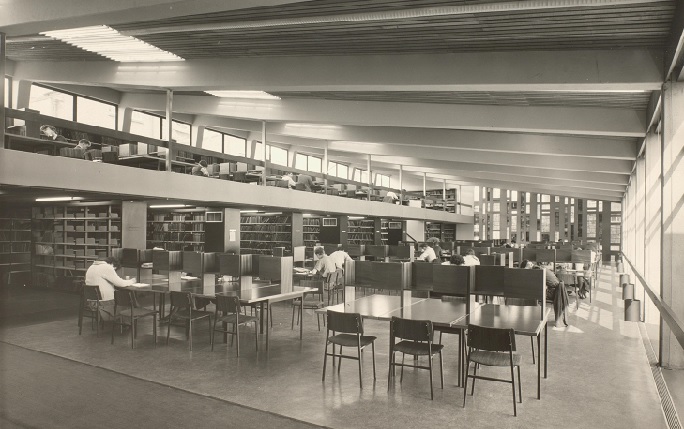The University of Liverpool alumni who brought you the postcode

After graduating in 1961, Professor Jim Alty stayed on at the University of Liverpool and went on to become Director of the Computer Centre. In 1975, when he received an interesting phone call from the Merseyside and North Wales Brewing Association, little did Jim, or the rest of the UK, realise that this was the start of the real adoption and utilisation of the postcode.
"I received a phone call from a Mr Armstrong from the Merseyside and North Wales Brewing Association who told me that in September 1975, Wales would be voting on whether to open the pubs on Sundays, or not. They envisaged that a large proportion of Wales – about 2 million voters – would be voting and that if they could get people to the polling stations many areas would vote to keep the pubs open."
"Mr Armstrong explained: "Our problem is this – the government is unwilling to produce poll cards (which show where their polling station is) and we will only know the location of the polling stations about 2-3 weeks before. So, we will have to create and post about two million poll cards within about a week or so. We wondered if you, with your huge new computer could help us?"."
"At the Computer Centre, we had just been delivered an ICL 1906S, which was a very powerful machine and he had obviously heard of this. I knew we could print such a huge number of polling cards, but I worried as to how we would create 2 million poll cards in a week with all addresses matching the correct polling station. "Leave it with me" I said not very confidently."
"Through a stroke of luck, I bumped into a person called Terry Lipson who ran a company called O E MacIntyre near the docks, which specialised in doing large mailings. After explaining the problem to him, Terry had a really bright idea: the postcode! At that time, the postcode was very new, and nobody used it. But Terry said, provided we have all the addresses post-coded, it will be simple to match the polling station postcode with the relevant address postcodes."
"However, this raised a serious issue – how do we create a fully post-coded address list for Wales? We decided to do it ourselves! Terry, who often worked closely with the Post Office, managed to access about 75% of the address for Wales fully post-coded, and use his workforce to manually capture the rest."
"Three of us from the Computer Centre uploaded the Post Office files and the files from O E MacIntyre and solved the poll station matching problem. The three of us working on the project were me (Director), David Goddard (a manager at the Centre) and Bob Carter (a brilliant programmer who later went to work with O E MacIntyre Ltd). We completed the work on time and delivered the two million poll cards to Terry who liaised with the Post Office for distribution throughout Wales. We were told that 99% of the cards were delivered successfully. I also wrote a paper predicting that many counties would swing to 'wet' (as we called a vote for opening!)."
"I was invited by the BBC to appear on a live television program broadcast from a pub in Llanrwst which was due to air after the polls closed hosted by Dennis Tooey (who used to appear with Cliff Michelmore on the Tonight program). General Franco had a stroke that night and our program was delayed by 15 minutes. We were in a tiny room in the pub which was sweltering. Round the low table were two vicars, two Brewery representatives and a 'Mrs Evans from Conwy' representing the average voter."
"At 10:15pm Dennis opened the program and then asked Mrs Evans to say a few words. She started reading from a script and I suddenly realised it was a very long script! The ministers initially applauded her comments, but she wouldn’t stop. Dennis pleaded with her to no avail, so he turned to me to talk about my predictions. I had on my knee McKenzie’s Swingometer (normally used in General Elections). I tried to make comments with Mrs Evans talking over me. At this point an engineer crawled under the small table to cut off her microphone, but he grabbed my leg by mistake, I cried out and dropped the Swingometer! Finally, in total confusion we went off the air with Mrs Evans still talking! The producer held his head in his hands and left the room. Dennis said: "I am finished as a presenter"."
"The program went down as one of the amazing events of live television, but apparently there are no recordings of it. Needless to say, Wales swung heavily 'wet' that night! For weeks afterwards, people were ringing me because they had seen the program. The Vice Chancellor of Swansea rang me because he knew me when he was Professor of Geography at Liverpool."
"However, after the program, the three of us and Terry, realised how useful the post code could be. Today it is used in lots of applications but the Post Office at the time didn’t realise its potential. We decided we would post-code the whole of the UK, and then offer to convert the files of commercial companies. We persuaded Readers Digest to come in with us, and over the next few months post-coded the addresses of the whole country. Bob Carter wrote programs to connect our post code file with a different commercial address files and we offered our post coding service to industry. The take up was astonishing. We post-coded hundreds of address files, and after that all companies began using the post code and eventually so did everyone. All because the Welsh wanted to have a drink on Sundays!"